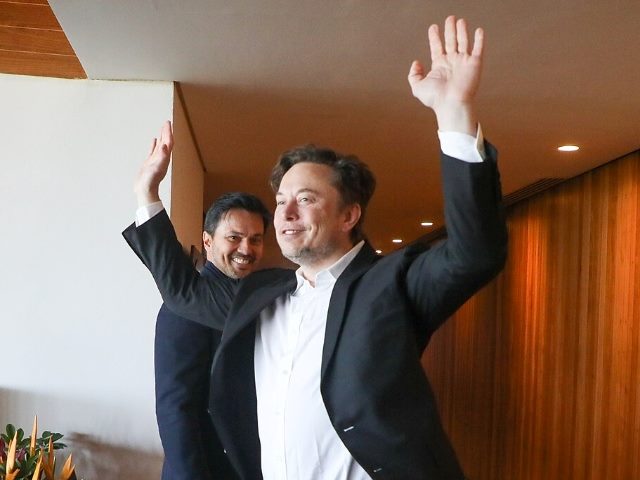The Gist
- Musk's $97 billion offer raises questions. Elon Musk's bid to acquire OpenAI appears more like a strategic disruption than a serious takeover attempt.
- Legal and strategic barriers. Musk’s offer could delay OpenAI’s for-profit transition while benefiting his own AI company, xAI.
- Altman and Musk trade barbs. Public and legal battles escalate, with OpenAI’s CEO accusing Musk of trying to slow down OpenAI’s progress.
Late last week, I emailed Elon Musk’s lawyer and suggested Musk had no real interest in buying OpenAI. Musk had made a $97 billion offer for the non-profit earlier in the week, sending the entire AI industry — and those of us following it — for a bit of a loop. It could be legit, but seemed more like a disruptive maneuver, and I wanted to ask Musk’s representation directly.
So I shared my theory with the lawyer, Marc Toberoff, and four minutes later he wrote back with a three word reply: “That's completely wrong.”
Musk and his legal team’s insistence that the offer is real should keep it in the headlines for a while, but I’m still skeptical of their story. While declaring the bid is serious, Musk said he’ll abandon it if OpenAI drops its plan to convert from a non-profit to a for-profit. He also has ongoing litigation to prevent OpenAI from becoming a for-profit altogether. And he’s said he intends to restore OpenAI to its open source roots, a tough path if you want to reward the investors backing it with billions.
For Musk, the takeover offer would likely be more useful as a nuisance to OpenAI — and it’s worth reading future coverage of it through that lens.
Table of Contents
- Musk’s Bid: Strategic Disruption or Genuine Interest?
- Public Feud: Altman and Musk Trade Blows
- Legal Battles and OpenAI’s Uncertain Future
- Core Questions Around Musk’s OpenAI Takeover Bid
Musk’s Bid: Strategic Disruption or Genuine Interest?
As others have noted, the $97 billion offer will almost certainly raise the compensation that OpenAI will have to pay the non-profit entity as it spins off, and it’s a sum potentially large enough to make the spin off impossible.
The longer the delay, the better it is for Musk’s xAI and its fellow OpenAI competitors, given that OpenAI needs to raise billions of dollars to keep scaling large language models, and perhaps stay in business. That’s naturally much harder to do as long as OpenAI remains a non-profit.
Beyond impeding OpenAI’s for-profit conversion, Musk’s offer is throwing OpenAI off a rhythm it’s worked hard to reestablish since it fired and rehired CEO Sam Altman in fall 2023. At the Paris AI Summit, Altman was bombarded with questions about Musk, not his company’s technology, and he didn’t handle the attention well. He was drawn into the muck, responding to Musk by saying, "Probably his whole life is from a position of insecurity. I feel for the guy.”
Visibly frustrated, Altman said he believed Musk was simply trying to hamper OpenAI’s progress. “I think he’s probably just trying to slow us down. He obviously is a competitor.”
Related Article: After Musk's Lawsuit, No More Illusions About OpenAI
Public Feud: Altman and Musk Trade Blows
The comments put Altman in a war of words with Musk and his associates, including Ari Emanuel, the fiery Endeavor CEO. “Sam said that Elon was ‘unhappy as a person.’ Yeah, thank you for your analysis!” Emanuel said at a live Freakonomics podcast event last Thursday. “Elon is unhappy because you’re phony and trying to get away with cheating the charity and its original mission. Elon is not.”
Meanwhile, much of the back and forth between the two parties is taking place through filings with U.S. District Court for the Northern District of California, another indication that this was mostly an attempt by Musk to block OpenAI’s for-profit move. The court is currently overseeing Musk’s challenge to OpenAI’s reshuffling, and the filings are showing up in that case’s docket.
In bringing his takeover offer to OpenAI, Musk might’ve harmed his larger case against OpenAI’s corporate transition though. As OpenAI’s lawyers pointed out, Musk argued that OpenAI’s assets cannot be sold for private gain, but he’s now attempting to “have OpenAI, Inc. transfer all of its assets to him, for his economic benefit and that of his competing AI business and hand-picked private investors.” Shortly after OpenAI filed those comments, Musk’s lawyers said he’d give up the bid if OpenAI remained a non-profit.
Legal Battles and OpenAI’s Uncertain Future
For Musk, it all might be worth it. After putting millions into OpenAI’s founding, he seems content to use all legal methods available to keep the structure he and Altman initially agreed to — and to harm OpenAI’s current operations — even if he’ll likely never see the takeover through.
OpenAI’s non-traditional governance has shaken the organization before, and Musk is using it to rattle the organization again. It’s a living nightmare OpenAI is unlikely to shed anytime soon.
Core Questions Around Musk’s OpenAI Takeover Bid
Editor's note: Here are key questions surrounding Musk’s offer and its implications for OpenAI:
Is Elon Musk’s $97 billion offer to acquire OpenAI legitimate?
While Musk’s legal team insists the bid is real, his ongoing legal battle against OpenAI’s for-profit conversion raises doubts about his true intentions.
How does Musk’s takeover bid impact OpenAI’s future?
The bid could delay OpenAI’s transition to a for-profit model, increasing the financial compensation owed to the non-profit, potentially making the spin-off infeasible.
What does Musk gain by blocking OpenAI’s for-profit move?
Delaying OpenAI’s access to billions in funding could benefit Musk’s AI company, xAI, and other competitors by keeping OpenAI in financial and strategic limbo.
How is Sam Altman responding to Musk’s actions?
Altman has publicly accused Musk of trying to derail OpenAI’s progress, while Musk’s allies continue to challenge OpenAI’s governance and mission.
Feature photo of Elon Musk used under Creative Commons 2.0.
Learn how you can join our contributor community.
